All three of the nation's largest airlines have repeatedly declined to comment (or outright ignored requests) on the fact that they were quietly charging some solo and business travelers significantly higher fares. But the last CEO of American Airlines – the only carrier still doing it – is happy to weigh in and defend that pricing tactic.
“The distinction between airlines and most other consumer products is airlines can price discriminate – what the economists call price discrimination” Doug Parker, who was CEO at American Airlines from 2013 until 2022, said on the latest episode of the Airlines Confidential podcast released on Wednesday. “I would never use these words, by the way, as a CEO, because it sounds like it's something bad. It's not bad at all … but it's true.”
That price discrimination Parker is referencing is airlines' ability to charge consumers a different price for the same flight. It's one of the core differences between the price of airfare and, as Parker compared it to, toothpaste, where every consumer will pay the same price.
“If you took the entire cost to fly the airplane, divide it amongst 150 seats, you'd need to charge $500 for every seat in order to make a modest profit,” Parker explained. “But if you can charge some people $1,000 and some people $200 and get to the same point, that works better.”
“I believe that's what's happening here,” Parker continued. “The negative way of thinking about that is that ‘Oh yeah, we're charging business customers more.' And indeed that's true: Businesses are less sensitive to price than certain consumers. So we discriminate in pricing.”
Parker ran American Airlines (and a few other carriers before that) until 2022, when current CEO Robert Isom took the job. Under Isom's leadership, American was reportedly the first to deploy this solo pricing structure. Delta and United have since rolled it back after a backlash.
Parker's former airline went far further than either of them. Our analysis of 200 domestic one-way routes from American's biggest hubs – Dallas-Fort Worth (DFW), Philadelphia (PHL), Miami (MIA), and Charlotte (CLT) – found that the airline was charging solo travelers higher fares on more than half of them.
Thus far, we’ve only seen these higher fares on domestic one-way flights – not on roundtrip bookings, giving solo travelers an easy way to avoid paying a penalty for flying alone. We’re also not seeing these price differences creep into international flights or any award tickets for travelers redeeming AAdvantage miles.
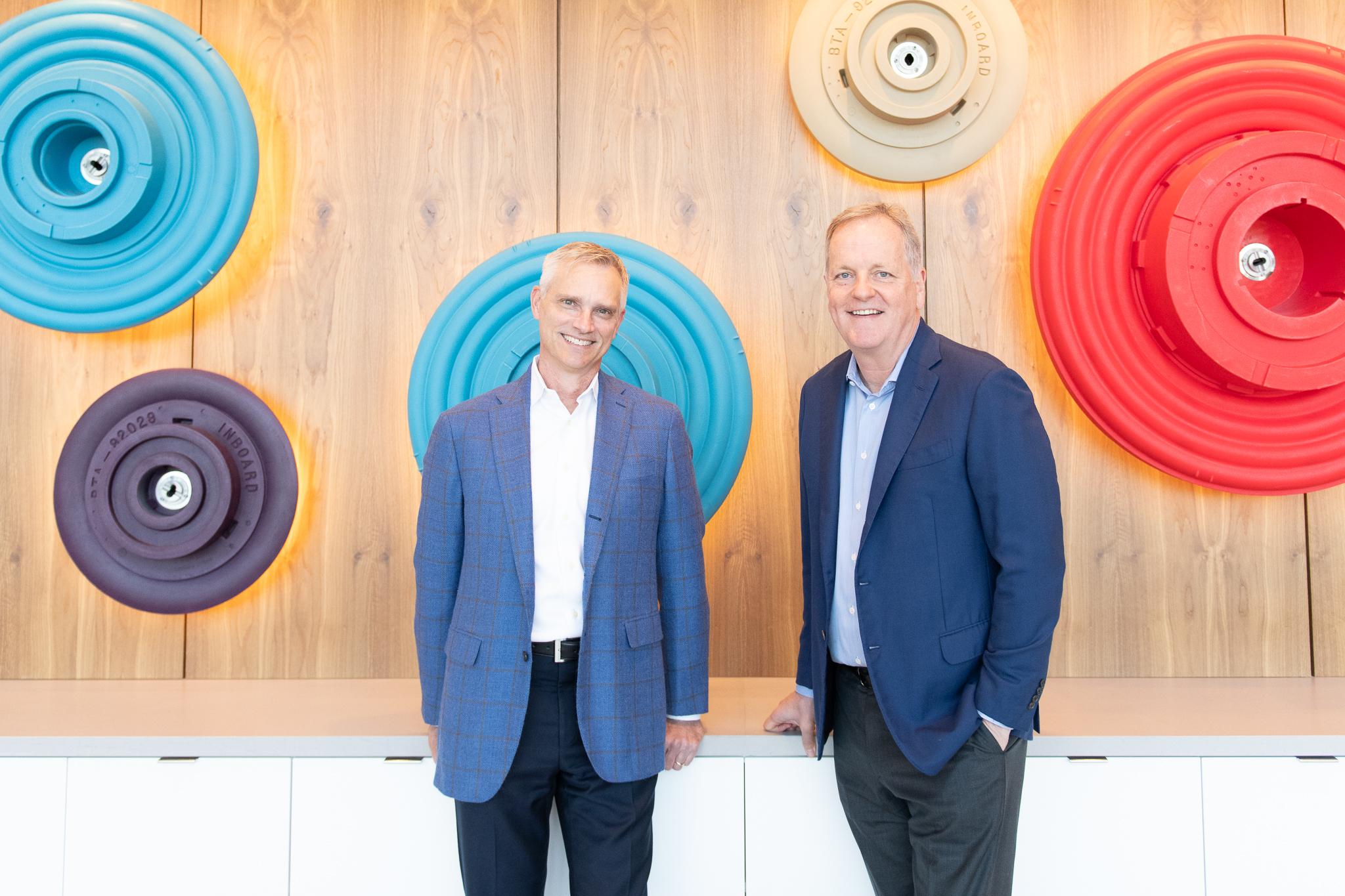
On the podcast, Parker compared it to an older pricing tactic airlines used in order to single out business travelers for higher fares: The so-called “Saturday stay” requirement.
“If you were willing to stay over a Saturday night, then they figured out you weren't a business customer and it was a much cheaper fare. And in those days … somebody who paid $1,000 for a ticket could be sitting next to somebody who paid $200 for at ticket in the same seats,” Parker said. “This is much better than that.”
But not all flyers booking a single ticket are business travelers. Plus, a solo traveler could easily extend their trip to return on a Saturday or Sunday in the name of a cheaper ticket. But they can't clone themselves.
Along with seven-day stay requirements, 14- to 21-day advance booking windows, and other pricing tactics, those Saturday stay requirements eventually came to light, even if airlines didn't exactly advertise it. Travelers had no idea that they might be paying higher fares just for booking a single ticket.
Now they do.
Parker echoed a common argument: That by employing price discrimination against solo passengers, airlines are not charging business travelers more but cutting groups of two or more a better deal.
“Airlines have the ability to do that, and most companies don't,” he said. “The net result of this is not that the person got penalized. The tickets for two are discounted.”
That may be true in some cases. Parker himself pointed to an example we found – in this case, from United Airlines – where the price per ticket for two or more passengers from Chicago-O'Hare (ORD) to Asheville was just over $100 while a single passenger on that exact same flight saw a fare of $223.
But our flight deal experts search through thousands of fares each and every day, giving us deep insight into how prices change over time. In far more cases, it's clear that airlines were charging solo passengers inflated rates – particularly American.
Take this flight from Charlotte (CLT) to Austin (AUS) this fall, which pulls up an outrageous $504 one-way fare for a standard economy ticket …
… unless you search for two passengers, in which case the price per ticket drops by a third to just $338 for that exact same economy fare. And there's an even cheaper basic economy fare available when you search for two passengers that doesn't appear when searching for just one.

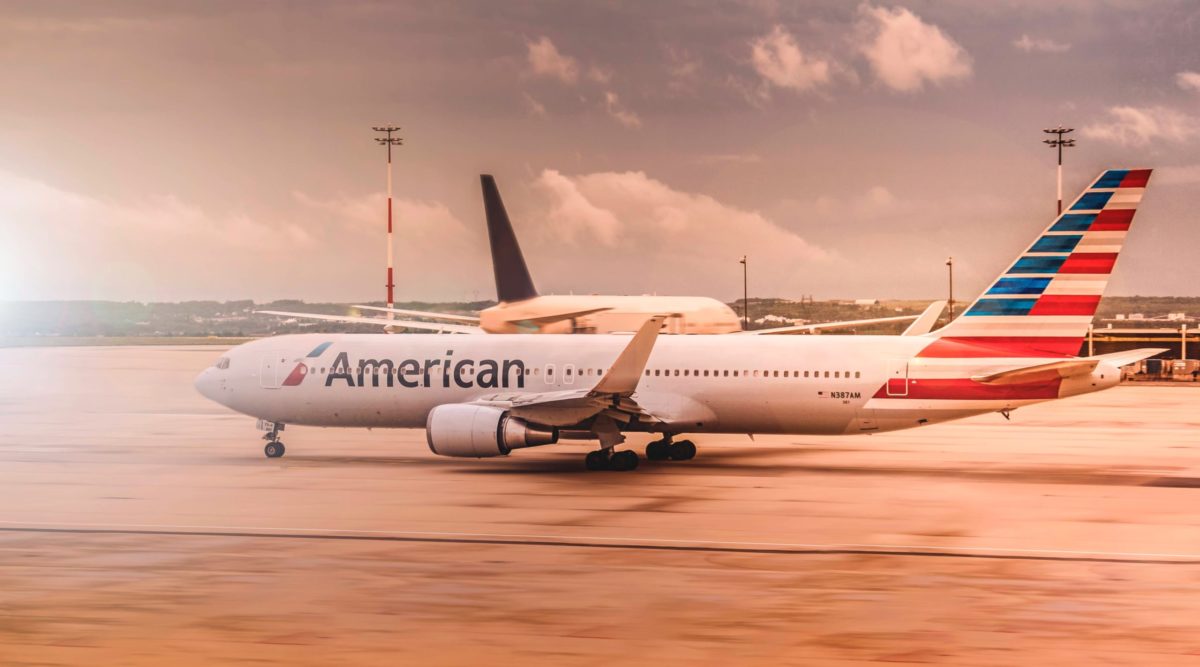

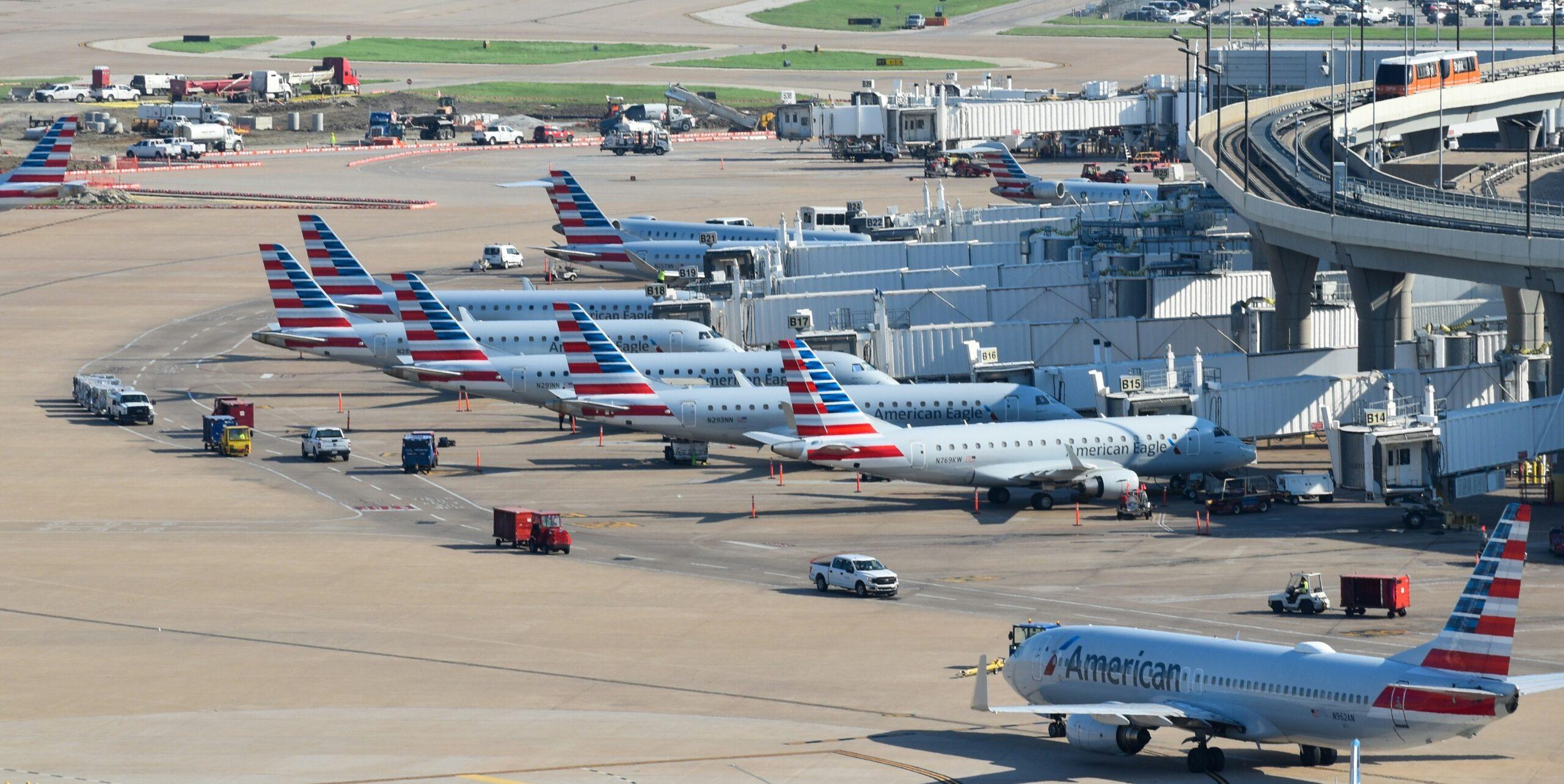
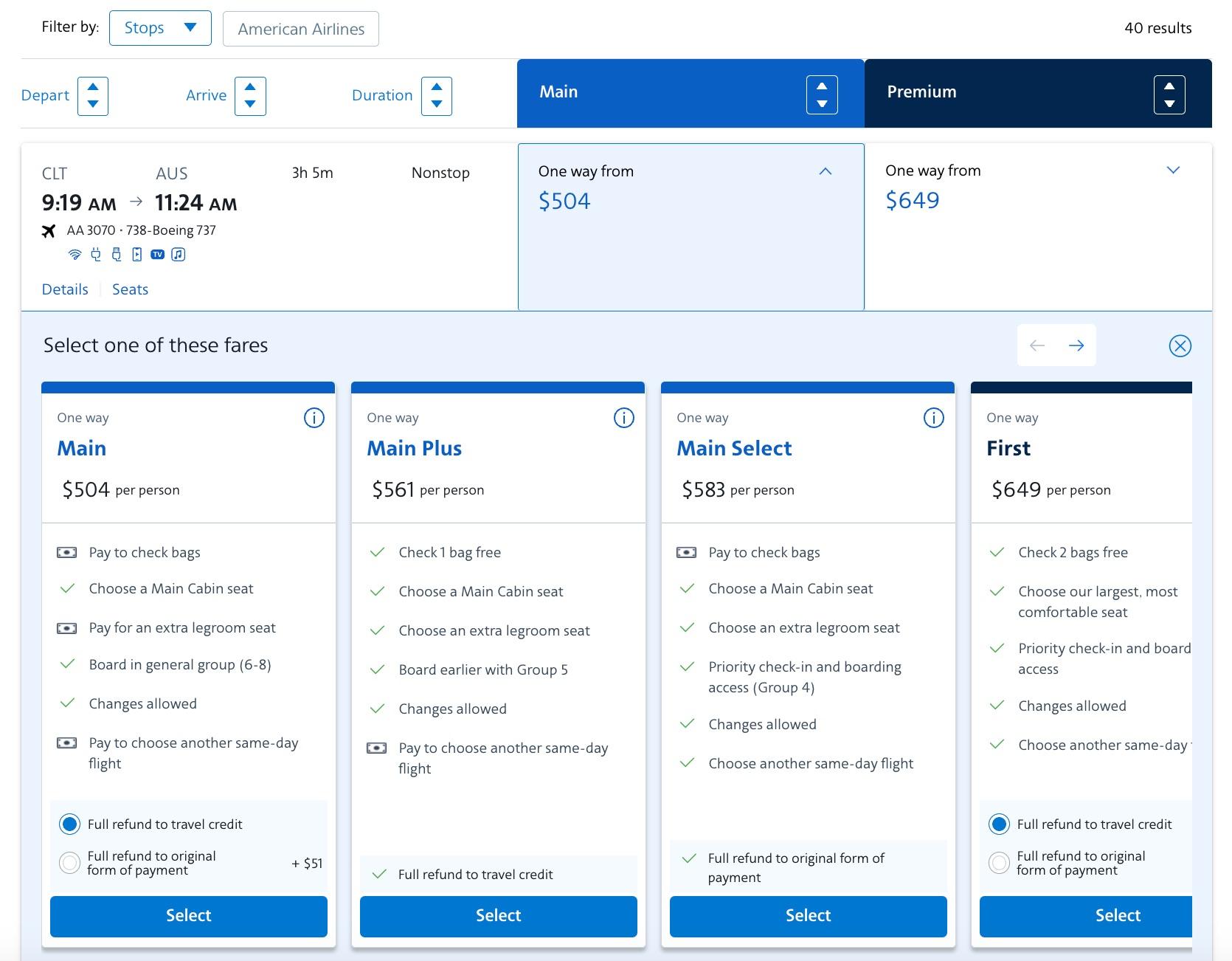
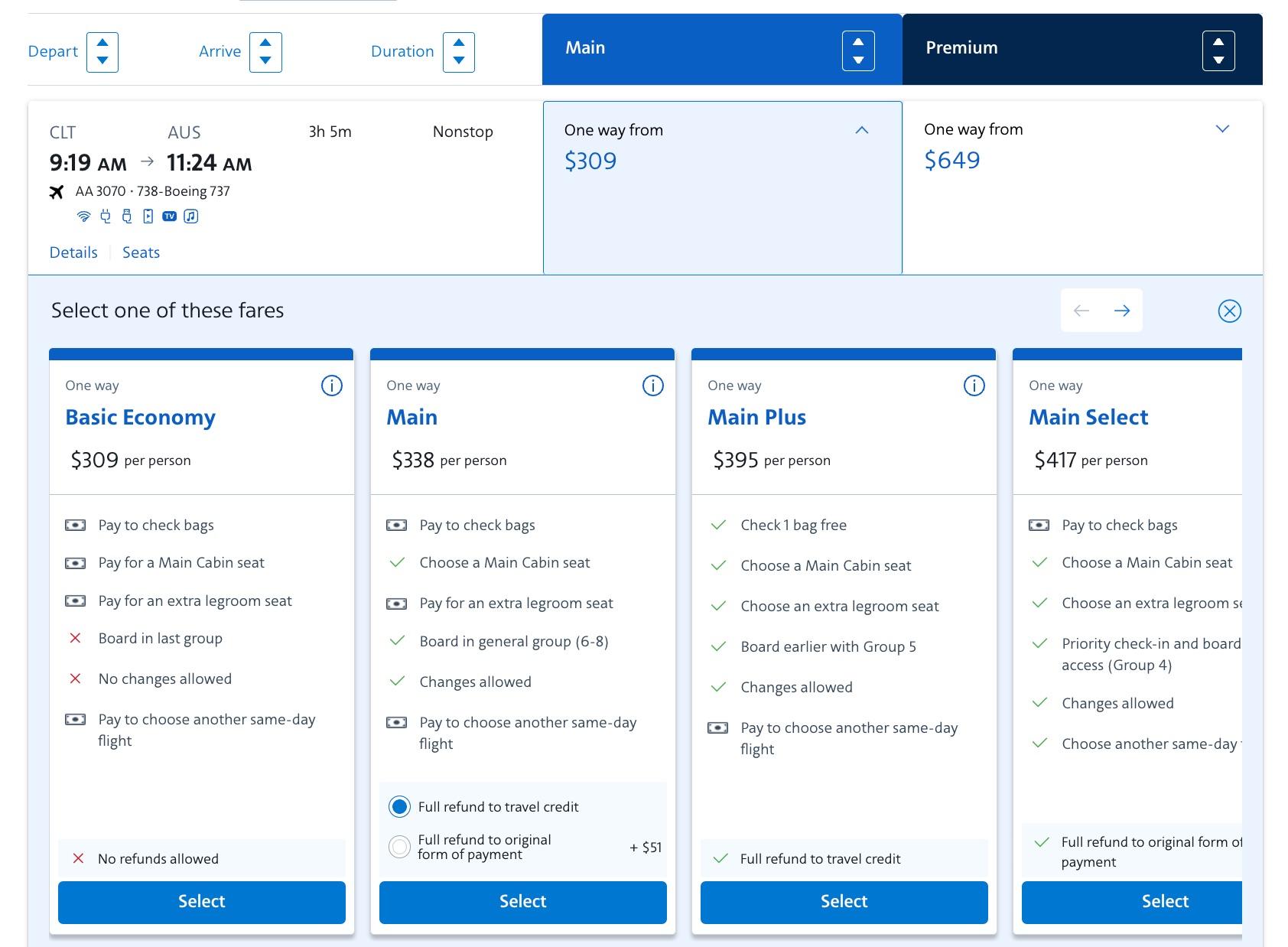



If airlines were smart they would offer/market a senior fare for single tickets…get AARP behind it etc.